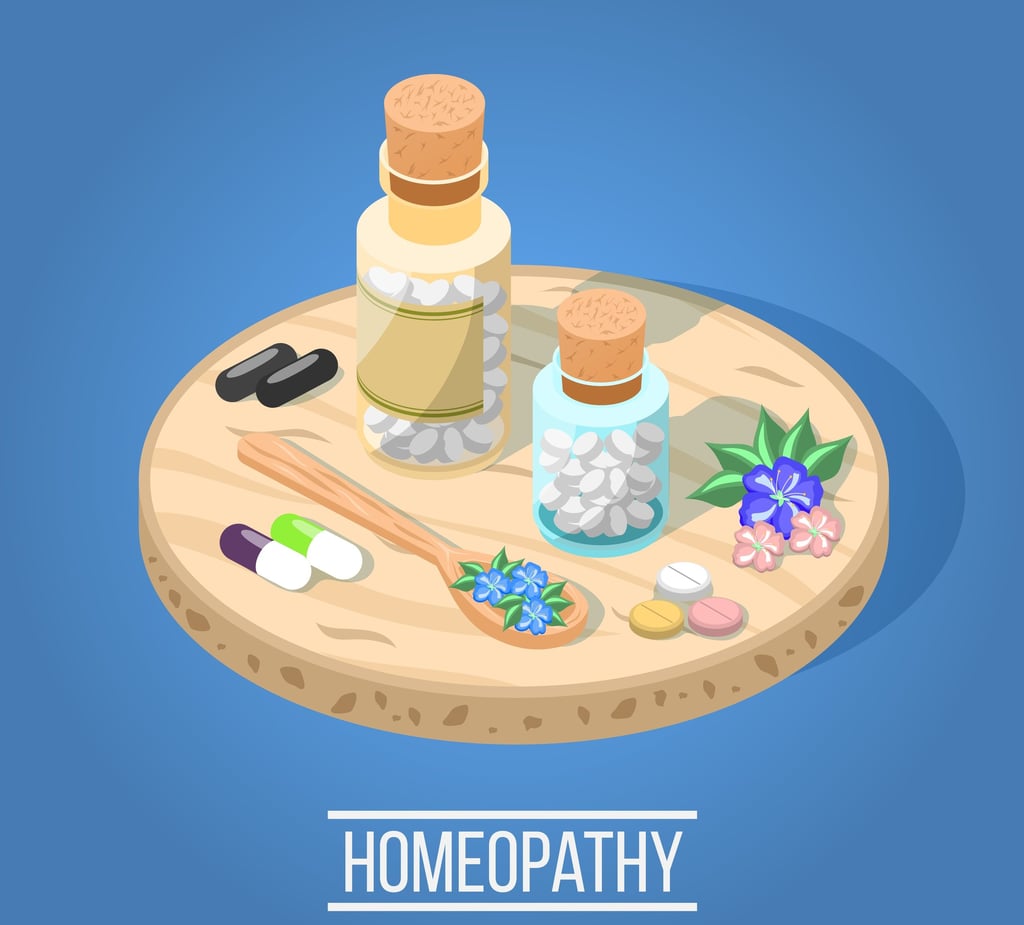Celebrating World Homeopathy Day: A Look at Homeopathy's Impact on Global Health
Spreading awareness about one of the most safe medical knowledge and practices


A Historical Overview of Homeopathy
Homeopathy, a system of alternative medicine, traces its origins to the late 18th century, specifically to the work of German physician Samuel Hahnemann. Disillusioned with the medical practices of his time, Hahnemann sought a more humane approach to healing. In 1796, he introduced the principle of "like cures like," which posits that substances causing symptoms in a healthy person can be used to treat similar symptoms in a sick person. This marked the inception of homeopathy as a recognized medical system.
Throughout the 19th century, homeopathy gained significant traction in Europe and North America, with Hahnemann establishing the first homeopathic hospital in 1821, further legitimizing the practice. The movement witnessed substantial growth, specifically during the mid-1800s, when numerous practitioners and institutions emerged, reflecting a widespread acceptance of homeopathic principles. Statistical data from this period indicate that, by 1900, there were approximately 15,000 homeopathic practitioners in the United States alone, alongside numerous homeopathic medical schools.
By the turn of the 20th century, homeopathy's popularity began to wane in some western nations due to the advent of modern medicine. However, the practice remained robust in countries like India, where it has flourished, providing care to millions. Today, India boasts one of the largest populations of homeopathic practitioners, with over 200,000 registered professionals. Homeopathy is integrated into the public health system, and many individuals turn to it for various health concerns.
In recent years, there has been a resurgence of interest in homeopathy worldwide, notably in the United States and Europe, as consumers seek alternative treatments. This renewed interest underscores the enduring legacy of Hahnemann's innovative ideas and their role in shaping patient-centered healthcare practices. Homeopathy continues to influence the global health landscape, reflecting both historical significance and contemporary relevance.
Current Landscape of Homeopathy in India and Worldwide
Homeopathy, as a system of alternative medicine, has seen substantial growth and acceptance in various parts of the world, particularly in India, where it is considered a significant aspect of the healthcare system. Established in the late 18th century by Samuel Hahnemann, this form of treatment is characterized by the principle of "like cures like," utilizing highly diluted substances to stimulate the body’s self-healing capabilities. In India, homeopathy boasts an impressive network, with over 200,000 registered practitioners and approximately 5,000 homeopathic colleges that train practitioners, thereby contributing to a robust public health infrastructure.
A recent estimate suggests that about 10% of India's population actively utilizes homeopathic treatments, making it one of the most widely practiced complementary medicine systems in the country. Pertinently, homeopathy is integrated into the national health policy framework, enabling its practitioners to work alongside conventional medical professionals. The Indian government recognizes the potential of homeopathy in providing holistic healthcare solutions, particularly in rural areas where access to allopathic medicine may be limited.
Globally, the acceptance and practice of homeopathy vary significantly among developed and developing nations. For instance, in countries like Germany and France, homeopathy is widely accepted and often covered by health insurance, indicating its established status within national healthcare systems. Conversely, in the United States, while awareness and use of homeopathy are growing, it still holds a more marginalized position compared to traditional medicine. Nonetheless, the increasing interest in alternative therapies and patient-centered care is fostering a more favorable environment for homeopathy’s growth, both in urban centers and rural settings.
The landscape of homeopathy today reflects a dual narrative; it is celebrated for its non-invasive approach and multi-faceted benefits, while simultaneously facing skepticism from some corners of the scientific community. Continued research, public awareness, and professional integration are essential for homeopathy to enhance its impact on global health.
Key Organizations Advancing Homeopathy
Homeopathy has seen significant support and advancement through various key organizations around the globe. These entities play crucial roles in promoting, regulating, and educating about homeopathic practices, thereby enhancing the credibility of this healthcare approach. Among these organizations, the Central Council of Homeopathy (CCH) in India stands as a pivotal regulatory body. Established in 1973, the CCH is responsible for formulating policies, setting standards for education, and regulating the practice of homeopathy across the country. By ensuring that practitioners meet established guidelines and providing an accredited framework for education, the CCH contributes toward the effective integration of homeopathy into the national healthcare system.
In the United Kingdom, the Faculty of Homeopathy serves as a significant organization dedicated to the promotion of homeopathic education and practice. This body is instrumental in enhancing the professionalism of homeopathy through comprehensive training programs and advanced research initiatives. By supporting practitioners in their continuing education, the Faculty helps maintain a high standard of care and fosters an environment of collaboration among healthcare providers. Furthermore, various international associations, such as the Liga Medicorum Homeopathica Internationalis (LMHI), unite homeopaths from around the world, advocating for the integration of homeopathy into global health policies. The LMHI is particularly notable for hosting international congresses that bring together practitioners to share research findings and clinical experiences.
These organizations collectively reinforce homeopathy's presence in modern healthcare. Their contributions extend beyond regulatory frameworks and educational programs; they also engage in research initiatives that explore the efficacy of homeopathy, thereby providing valuable data that supports its use as a viable treatment option. Through their efforts, these prominent organizations enhance the credibility and scope of homeopathy, fostering a collaborative environment for practitioners and patients alike.
Enhancing Quality of Life Through Homeopathy: Present and Future Perspectives
Homeopathy has emerged as a significant contributor to enhancing quality of life for individuals dealing with chronic conditions and lifestyle-related diseases. The foundational principle of homeopathy focuses on stimulating the body's innate healing abilities through highly diluted substances tailored to each patient's unique symptoms. This personalized approach has yielded promising health outcomes, particularly for those suffering from persistent ailments such as allergies, asthma, and chronic pain. Numerous case studies and testimonials reflect the transformational impact of homeopathic treatments; patients often report substantial improvements in their health, overall well-being, and daily functioning.
For instance, in a study involving individuals with chronic migraines, participants who received homeopathic remedies noted a remarkable reduction in the frequency and intensity of their headaches compared to those treated with conventional medications. Additionally, patients suffering from anxiety and depression have found relief through homeopathic treatments that focus on both mental and physical symptoms, further demonstrating the effectiveness of this alternative therapeutic approach. Such positive outcomes reinforce the role of homeopathy in managing chronic conditions and underline its potential to enhance the quality of life for countless individuals.
Looking ahead, the future of homeopathy appears promising. Ongoing research and innovative practices continue to expand its application within contemporary health concerns. The increasing recognition of holistic health approaches has led to discussions surrounding the potential synergy between homeopathy and mainstream medicine. Collaborative efforts may harness the strengths of both practices, providing comprehensive care that addresses not only physical symptoms but also emotional and psychological dimensions of health.
As health challenges continue to evolve in our modern society, homeopathy stands equipped to adapt through ongoing innovations and research initiatives. By embracing evidence-based practices, homeopathy aims to play a pivotal role in shaping the path toward a healthier future, fostering a balanced approach to wellness that prioritizes individual needs and holistic healing.
